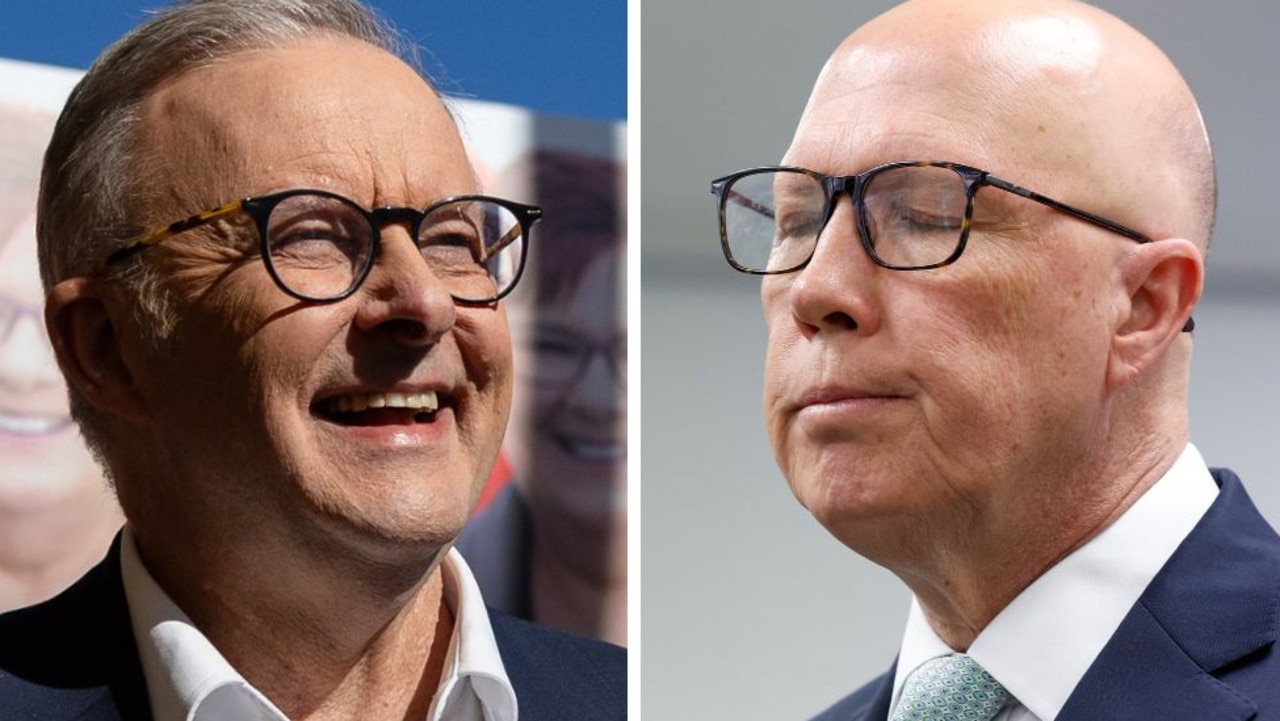Crossbench MPs reveal priorities if Labor or the Coalition seek their support for minority government
These are the crossbench MPs who will hold all the power if Labor or the Coalition needs to form a minority government — and what they would want in return.

Federal Election
Don't miss out on the headlines from Federal Election. Followed categories will be added to My News.
In a hung parliament they have the power to help either Anthony Albanese or Peter Dutton become prime minister, but crossbench MPs are all vowing they won’t make formal agreements with either major party.
Suburban and regional minor party MPs, inner city Teals and long-time independents are adamant they’ll offer no more than “confidence and supply” if Labor or the Coalition needs support to form a minority government, insisting deals of unconditional support are off the table.
This would mean Australia’s next prime minister faces three years of negotiating support from independents for every single piece of substantial legislation.
Not including the Greens, there are 13 lower house MPs on the crossbench recontesting their seats at the election, which most national polls have predicted will end in a hung parliament.
Despite this probability, not a single independent has confirmed which major party they would support, but they do have a range of priorities that will help them decide.
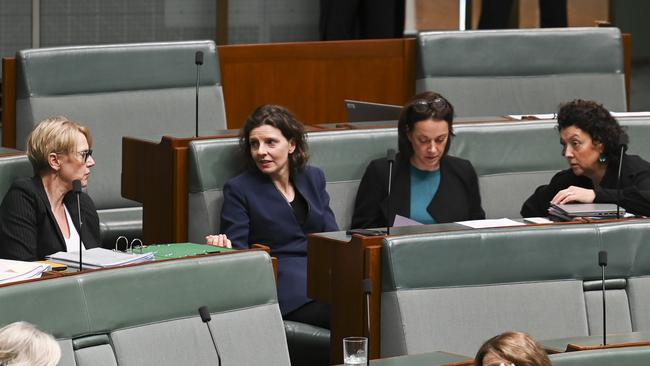
Local infrastructure funding, climate action, transparency measures, cost of living supports and tax reform are among the asks MPs want in return for providing a confidence vote to any minority government.
WHAT ARE THE CHANCES OF A MINORITY GOVERNMENT?
To form majority government a party must secure at least 76 seats in the House of Representatives, with Labor currently holding 77 and the Coalition on 55, having lost two seats to crossbench defections and one in a by-election this term.
Almost every major public poll conducted in recent months has predicted neither side is on track to win enough seats to govern in their own right, with Labor favoured as being more likely to get closest.
WHAT KIND OF DEAL WILL BE DONE?
There are two main ways a crossbench MP can help support a minority government.
The first is to enter a formal arrangement where the independent or minor party effectively votes with the major party on all proposed laws in exchange for key concessions, which several MPs did in 2010 when Labor was in minority.
The other option is to only offer what is known as “confidence and supply” support, meaning the crossbench MP would side with the government to defeat any votes of “no confidence” moved against them by opponents, and also back “supply” measures that allow the government to spend money.
Under this type of agreement the minor party or candidate would likely still expect some concessions, but it is generally expected that in return for their freedom on substantive issues they would have less bargaining power upfront.
Not a single independent MP has indicated they would be willing to enter into a formal agreement with either side, while both Labor and the Coalition have played down the prospect of such deals.
WHAT ABOUT THE GREENS?
The Greens are expected to support Labor’s bid to form minority government, but a key factor will be just how many votes they have to offer up.
The minor party currently holds four lower house seats, but of those only Greens leader Adam Bandt is considered safe in his electorate of Melbourne.
Elizabeth Watson-Brown is facing a strong challenge from the Liberals in her Queensland seat of Ryan, Labor are targeting Griffith MP Max Chandler-Mather, and both major parties are going after Brisbane MP Stephen Bates in what will be a tight three-corner race.
WHERE DO INCUMBENT CROSSBENCH MPs STAND?
Calare MP Andrew Gee
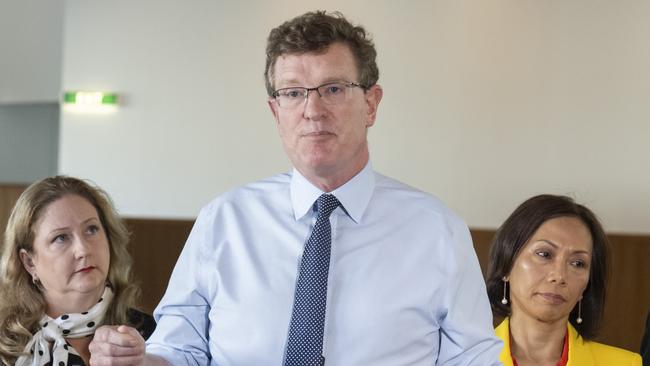
Electorate: Calare, NSW
Margin: 9.68% (won as a National)
Favourite to win: Too close to call. The Nationals are confident of regaining this seat, but with another Teal independent challenger in the mix, this rural NSW electorate may come down to preference flows.
Major party preference: Though he quit the Nationals over the party’s stance on the Voice referendum, most Coalition and Labor insiders believe it would be politically untenable for Andrew Gee to not back Peter Dutton in a minority government.
Clark MP Andrew Wilkie
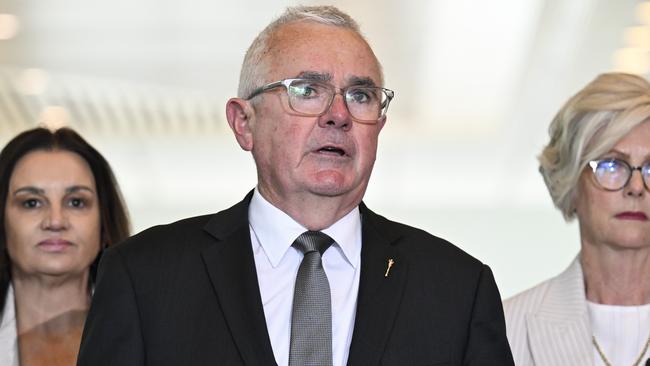
Electorate: Clark, Tasmania
Margin: 20.82%
Favourite to win: Yes. Having held the electorate since 2010, Andrew Wilkie is expected to easily retain his seat.
Major party preference: Citing his experience of 15 years ago when he backed Julia Gillard to help Labor form a minority government, Mr Wilkie is adamant there will be no formal deal this time. He has tended to vote more with Labor and the Greens than the Coalition on substantive legislation.
Priorities for 2025:
“I will not enter into a formal deal with either major party after the election in order for them to form government.
“Instead, I will approach all parliamentary business on its merits, including any vote of confidence in the government and its budget.
“My position on formal deals is informed by my experience during the Gillard minority government.
“For a time I did have a formal agreement with that government, which was dishonoured by the government and not worth the paper it was written on.
“Moreover the agreement, though limited, did have the effect of pulling me too close to the Gillard Government and subtly reducing my political freedom.
“In the next parliament my focus will continue to be social justice and making Australia a fairer place, including addressing the cost of living, and providing improved income support for disadvantaged people and much better public services in areas like health, education, housing, transport and so on.
“My flagship issues will remain enhancing integrity in both the public and private sectors, addressing climate change, the need for a more independent foreign and security policy, animal welfare, gambling reform, and a legal and more humane response to asylum seekers.”
Curtin MP Kate Chaney
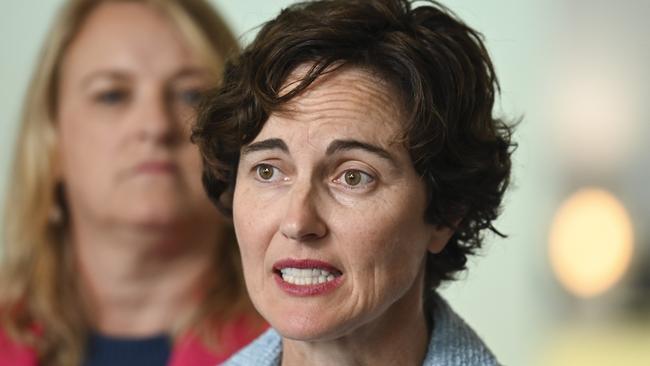
Electorate: Curtin, Western Australia
Margin: 1.32%
Favourite to win: Leaning no. Curtin is considered the most likely pick up for the Liberals out of any of the inner-city seats the party last to Teal independents in 2022.
Major party preference: Kate Chaney has ruled out a formal agreement with either side on substantive legislation, but is willing to provide confidence and supply to the party willing to act on her policy priorities. Like all the Teals she holds a once-blue ribbon Liberal seat, but that may be less of a factor if Labor get closer to forming minority and are seen to have the stronger mandate.
Priorities for 2025:
“A minority government is an opportunity to break free from the two-party deadlock and build a government that actually listens.
“It forces real negotiation, genuine collaboration and greater accountability – something we’ve already seen in action with a strong independent crossbench.
“If re-elected, I won’t do any deals that limit my ability to vote on legislation based on its merits, the values of our community, and the long-term interests of the country.
“If my support is needed for confidence and supply, I’ll be asking what each party is willing to do on the big issues Curtin cares about – like the economy, climate, and housing – to ensure younger generations have a future they can believe in.
“No matter who forms a minority government, they will have to work with a parliament that holds them accountable, instead of just toeing a party line. The two-party system has failed us. “A balanced parliament means stronger scrutiny, smarter decisions and more voices at the table – which is a win for all Australians.”
Fowler MP Dai Le
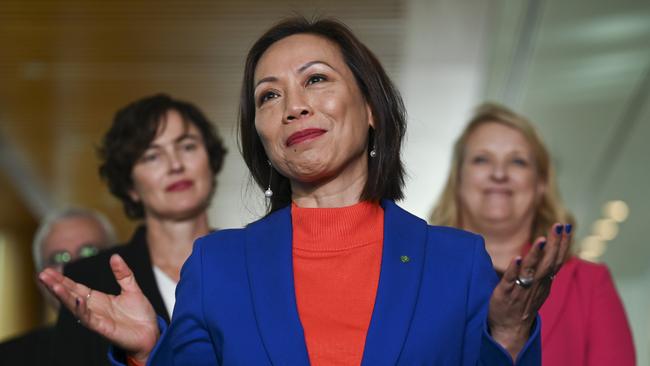
Electorate: Fowler, NSW
Margin: 1.80%
Favourite to win: Yes. Labor are putting on the pretence of having a crack in Fowler, but below the surface no one in the party thinks this once-safe seat is coming back to them despite it currently sitting on a razor thin margin.
Major party preference: Though staunchly protective of her independent status, Dai Le is viewed as more likely to offer supply to the Coalition,a belief not lost on Liberal leader Peter Dutton who has visited her in Western Sydney several times this term. Her seat may have once been safe for Labor, but that doesn’t mean she’d offer support to keep the party in government.
Priorities for 2025:
“I don’t do ‘non-negotiables’, I believe that we need more negotiation in federal politics, not less. I am a very good and honest negotiator, and I’m looking forward to bringing Fowler’s priorities to the negotiating table should I be given the honour of representing this wonderful seat in Western Sydney once more.
“When we’re talking about support for a major party in a hung parliament, we are talking about supply.
“Who I would support to get supply through would be the team that considers best the needs of my community of Fowler.
“Cost-of-living is the highest priority. Fowler needs more done to encourage bulk-billing GPs to set up clinics in our area, we need an MRI at Fairfield Hospital, we need more support for our CALD community including a Health Centre.
“Our schools need airconditioning and technology upgrades.
“Our small businesses need help with increasing the instant asset write-off to $50k and removing regulation.
“The tax-free threshold needs to be increased to reflect the damage done by years of inflation.
“We need a complete overhaul of our energy system and regulatory processes to bring our bills down.”
Goldstein MP Zoe Daniel
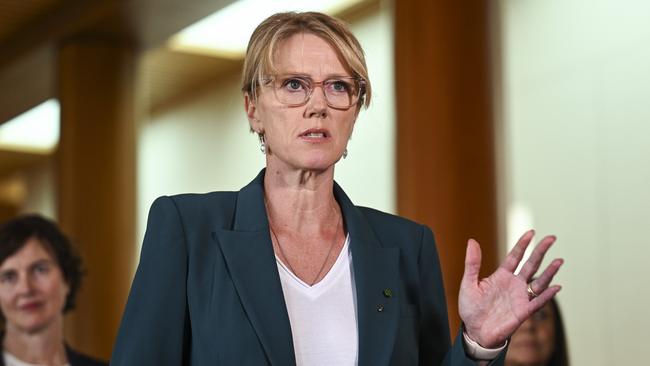
Electorate: Goldstein, Victoria
Margin: 1.80%
Favourite to win: Too close to call. Both sides of this contest believe they have a serious chance of winning, with responses to key local issues and a strong ground game during the campaign considered vital to success.
Major party preference: Like all the independent MPs, Ms Daniel has insisted publicly she is open to working with either Labor or the Coalition. Much could depend on which major party is perceived to have the stronger mandate by having secured the most seats.
Priorities for 2025:
“As I have always said, I am open to a dialogue with both major parties to discuss what policies they will commit to that will lead to better outcomes for the people of Goldstein and the country as a whole.
“My priorities go to integrity and trust in government and the long-term policies that will make a difference to our children’s future; tax reform leading to lower income taxes, long term housing policy, women’s safety and empowering women through access to universal early childhood education and consistent climate and energy policy.
“In advance of an election even being called I would encourage both major parties to show respect to voters in Goldstein and elsewhere to keep their doors open to these important discussions about the future of our nation.”
Indi MP Helen Haines
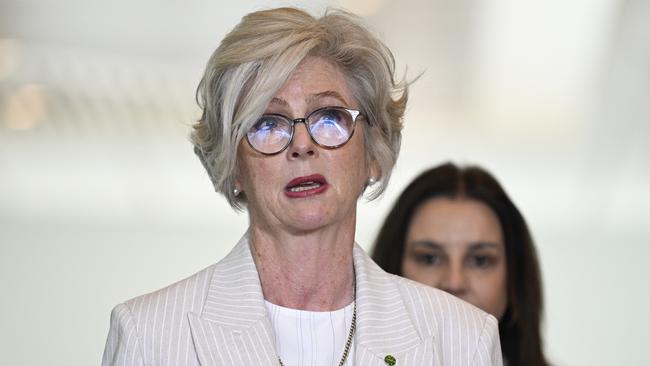
Electorate: Indi, Victoria
Margin: 8.94%
Favourite to win: Yes. Despite a comfortable margin built off the back of years of work by the independent movement in this regional Victorian seat, Helen Haines isn’t taking anything for granted, but pollsters say her re-election is certain.
Major party preference: Ms Haines has repeatedly said she will not sign any deals with either side that would tie her vote on substantive issues to either major party.
Priorities for 2025:
“If I am re-elected at the next election, I will approach the next term of parliament and the future government in the same way I have in the 46th and 47th Parliaments.
“For me, that means looking at each piece of legislation on its merits, asking if it is good for the people I represent in Indi, and how it can be made better.
“Being an independent Member of parliament is important to me, and to the people of Indi. I will not be signing any deals with either major party that would remove my ability to vote on every piece of legislation on its merits.
“If a situation of minority government arises following the 2025 election, my decision making will be driven by my values and the issues that matter to the people of Indi.
“I will never be controlled by a major party, and will continue to assess every piece of legislation on its merit.
“The issues that are important to me and to the people of Indi are no secret: world-class healthcare, affordable and available housing, practical help for households in a cost-of-living crisis, integrity in government, real action on climate change that fosters resilience and opportunity, safe roads and reliable telecommunications.”
Kennedy MP Bob Katter
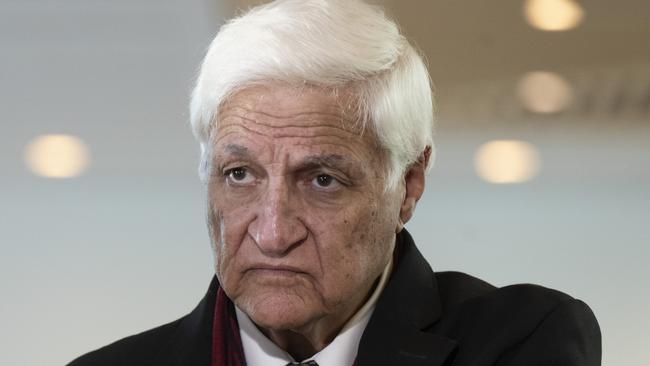
Electorate: Kennedy, Queensland
Margin: 13.10%
Favourite to win: Yes. As ‘grandfather of the House of Representatives’ — an honorary title granted to the longest serving MP at any given time — it’s hard to imagine a parliament without Bob Katter.
Major party preference: Widely believed to be more likely to side with Coalition, but don’t count Bob Katter out as an option for either side as he has a history of making political leaders bring the cheque book when they visit his vast North Queensland electorate.
Kooyong MP Monique Ryan
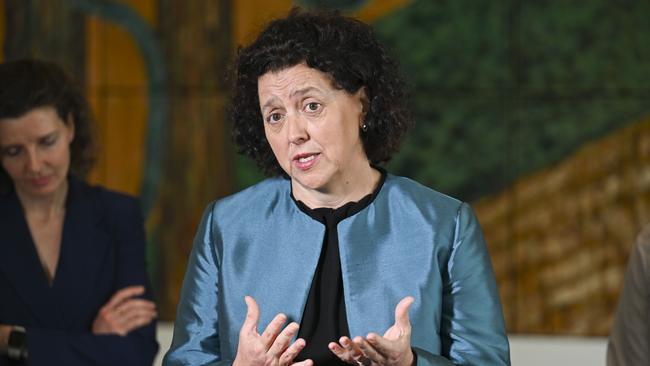
Electorate: Kooyong, Victoria
Margin: 2.52%
Favourite to win: Leaning yes. Few Liberals believe they have a chance of regaining Kooyong, though as a marginal electorate Monique Ryan’s win is not guaranteed.
Major party preference: Branded a ‘fake independent’ by her opponents because she was a member of the Labor Party between 2007 and 2010, Ms Ryan is broadly considered the Teal most likely to back Anthony Albanese to form minority government. For her part, Ms Ryan has maintained she is open to talking with both sides and is not looking to do a formal deal.
Priorities for 2025:
“In 2025, the top issues in Kooyong are the cost of living, house prices, crime and community safety, and the climate crisis.
“What I am looking for, from the major parties, is well-developed, mature, coherent policy, with sufficient detail that my electorate can feel confident in their ability to address those issues.
“In the event of a minority government, I’d consider those policies when deciding to which major party I would guarantee confidence and supply.
“I would not be seeking a formal agreement with either major party.”
Mackellar MP Sophie Scamps
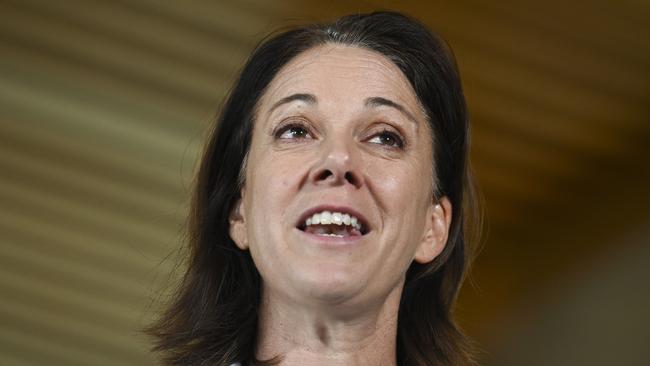
Electorate: Mackellar, NSW
Margin: 1.77%
Favourite to win: Leaning yes. Mackellar is considered the more likely of any of the NSW seats held by Teals to return to the Liberals, but the Coalition face an uphill battle.
Major party preference: Ms Scamps has indicated she is willing to work with either major party, but sources in the Coalition think she’s more of a chance to go Labor than some other Teals.
Priorities for 2025:
“I’m happy to work with either major party as it is the quality of policies, not party ideology, which matters.
“My priorities are clear and consistent and stem directly from the views and values of the people of Mackellar.
“As a doctor, I always based my decisions on the best evidence and expert advice to ensure the best outcomes and I continue to work in the same way in this role.
“The key issues that will inform my decisions in the event of a minority government are:
“Cost of living relief, including measures to make housing more affordable for young people and key workers.
“Economic management, including inflation reduction, tax cuts for small business, and ending the $10 billion free ride the fossil fuel industry gets.
“Continued and strong action on climate and environment.
“Health policy, including banning advertising from harmful industries, making our roads safe and efficient, and ending the failed public private partnership at our local Northern Beaches Hospital.”
Mayo MP Rebekha Sharkie

Electorate: Mayo, South Australia
Margin: 12.26%
Favourite to win: Yes. Elected in 2016, Rebekha Sharkie is the longest serving female member of the crossbench and is set to comfortably retain her suburban Adelaide seat.
Major party preference: Last year Ms Sharkie told the AFR she believed her community would “expect me to have a conversation with the Liberal Party first,” but emphasised this would just be the starting point of any minority government negotiations.
Monash MP Russell Broadbent
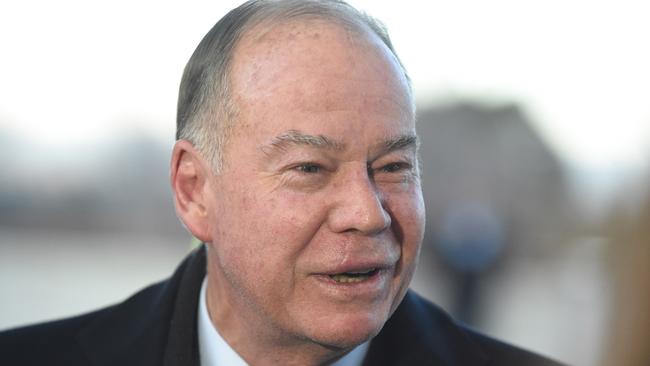
Electorate: Monash, Victoria
Margin: 2.90% (won as a Liberal)
Favourite to win: No. After losing preselection to run in his seat as a Liberal, Russell Broadbent moved to the crossbench in late 2023 and has decided to challenge his old party as an independent. Despite the contest becoming a three corner contest between the Liberals, Mr Broadbent and a Teal independent candidate, the Coalition are confident this seat will come home to them.
Major party preference: If Mr Broadbent won it is expected he would favour the Coalition in any minority government talks given his longstanding opposition to the Labor Party.
Priorities for 2025:
“In regard to the make-up of the parliament, I can’t be bought and nor can my electorate. We’re not for sale.
“Hung parliament or not, I’ll continue my calls for a Royal Commission into the nation’s Covid response, recognition of the vaccine-injured, and a review of the Covid vaccine compensation scheme.
“I also want the nation to refocus on the cheapest power source which is coal and gas. “Australia is one of the largest exporters of coal and gas for electricity around the world, particularly China and India, so why are we shooting ourselves in the foot chasing an ideological goal instead of making the best use of our existing and abundant resources?”
Warringah MP Zali Steggall
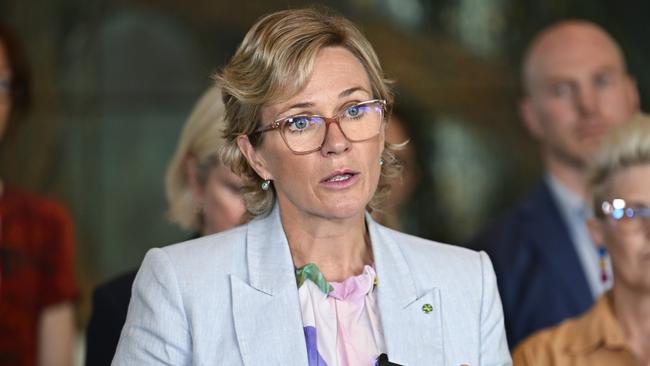
Electorate: Warringah, NSW
Margin: 10.96%
Favourite to win: Yes. Zali Steggall ousted former prime minister Tony Abbott way back in 2019 well before the word Teal even meant anything in Australian politics, and in her subsequent two terms the people of Warringah have not shown any signs of tiring of her.
Major party preference: Like all the Teal MPs, Ms Steggall hold’s an electorate once considered a blue-ribbon Liberal seat. With this history it would be difficult for her to go with Labor, particularly if the Coalition secures a similar number of seats.
Priorities for 2025:
“In my two terms in parliament, I’ve successfully worked with both the Coalition and Labor. “If in a position to support a minority government, I’ll be looking for those I can trust to act in good faith and ensure stability.
“To do this, I’ll consider the overall numbers in both Houses of Parliament, whether voters have clearly rejected one party over the other, and the ability to maintain momentum on key policy areas for Warringah, like climate action and cost of living.
“This is not a US-style presidential election, so I’ll look beyond the party leader to also assess the strength of each side’s team — and their capacity and capability to deliver sound policy for the Australian people.”
Wentworth MP Allegra Spender
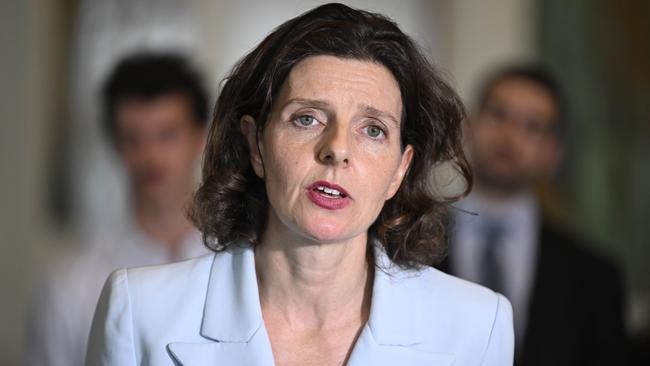
Electorate: Wentworth, NSW
Margin: 0.58%
Favourite to win: Yes. Of all the Class of 2022 Teal MPs, Allegra Spender is expected to have the biggest jump in support going into a second term, with the Liberals not even considering regaining this seat as an outside chance.
Major party preference: Liberals are hopeful Ms Spender’s economic views more closely align her with the Coalition than Labor and she has voted with the opposition more often than other Teals. But given she has also prioritised issues like climate and social issues like protections for minorities, her support is not guaranteed.
Priorities for 2025:
“If I’m re-elected, I will remain an independent and continue to work for the values of my community. I’m open to working with either of the major parties in the event of a minority parliament.
“My community asked me to fight for strong climate action in the next decade, long-term economic reform that helps young people get ahead and makes it easier for business to thrive, and a kinder community – with better protections against antisemitism and for our LGBTIQ+ community.
“In all discussions with the major parties these issues will be front and centre.
“Regardless of who forms government, I will continue to vote on each and every piece of legislation on its merits – after consultation with the experts and my community. I won’t compromise on my community’s values.
“All my policies are available on my website.”
More Coverage
Originally published as Crossbench MPs reveal priorities if Labor or the Coalition seek their support for minority government





